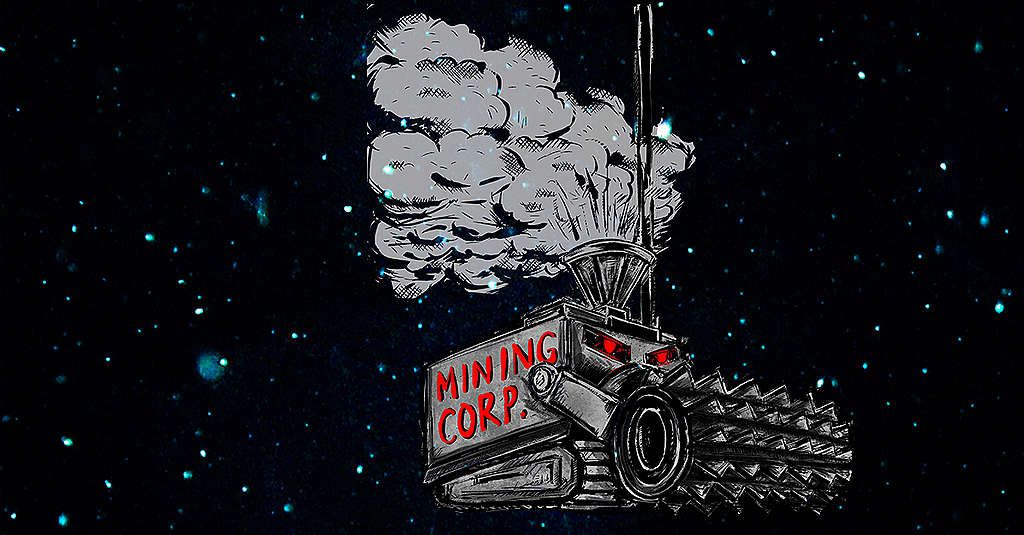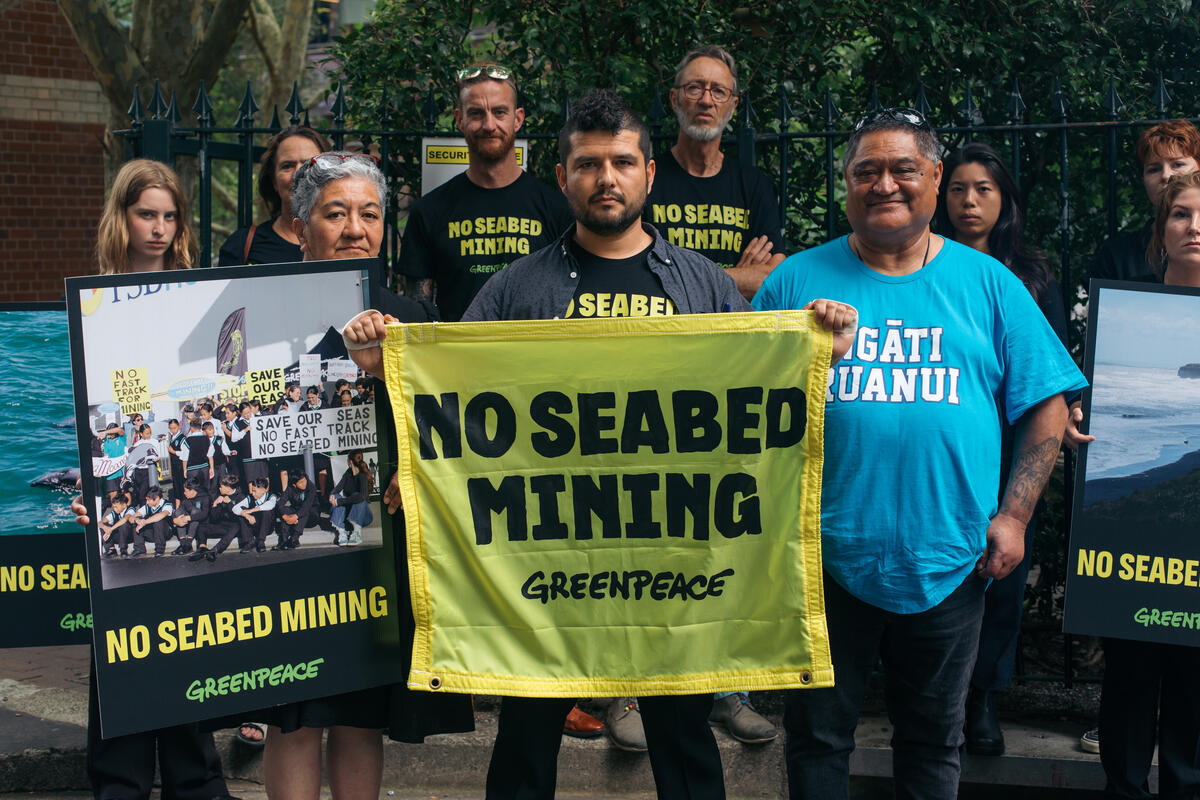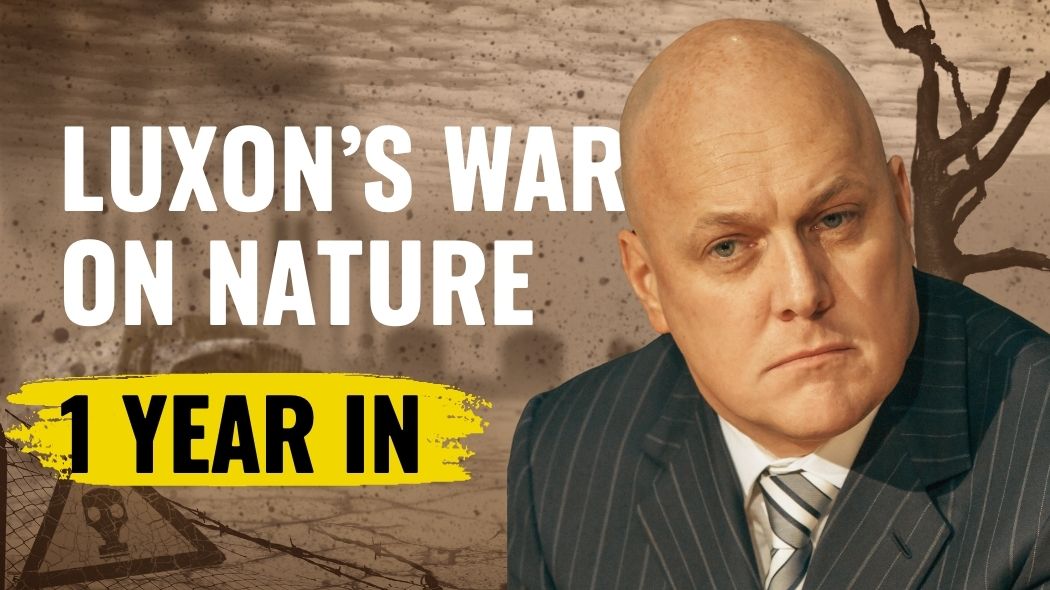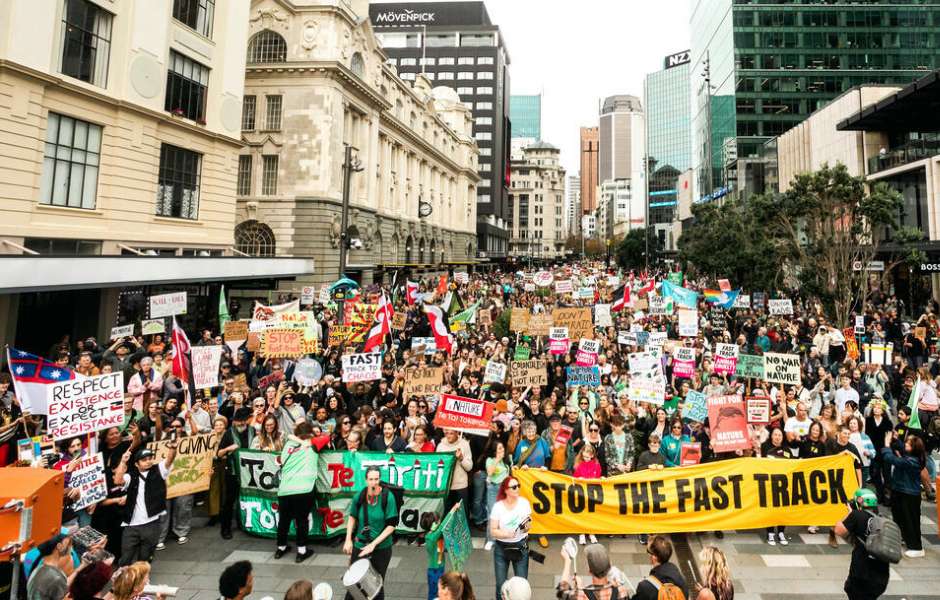Kingston, Jamaica— Video projections featuring civil society leaders from the Pacific region calling for a halt to deep sea mining were seen throughout the weekend in Mexico City, Mexico, Toronto, Canada, Dover, UK, and Kingston, Jamaica. Greenpeace organisations created these videos while working with these leaders at the International Seabed Authority (ISA) in Kingston to share Indigenous perspectives about the impacts the industry would have on their region’s cultural heritage, food security and livelihoods.
“The story of our creation begins in the ocean in the deep seas. Our role as humanity is to create balance and to care for all things that precede us, even the coral polyp. We are here at the ISA to discuss our connection to the deep sea and share this perspective so that this can be included in this discussion on launching an industry that will encroach into the place of creation itself. We are here to say no to deep sea mining and no to the destruction of our cultural heritage,” said Solomon Pili Kahoʻohalahala, a native Hawaiian Elder of the Papahānaumokuākea Marine National Monument Advisory Council and Native Hawaiian Cultural Working Group.[1]
In March, Kahoʻohalahala and fellow Indigenous activist Hinano Murphy delivered a petition to the ISA with over 1,000 signatories from 34 countries and 56 Indigenous groups calling for a total ban on the industry. Similarly, the Pacific Parliamentarians’ Alliance on Deep Sea Mining (PPADSM), supported by the Federated States of Micronesia, Fiji, Palau, and Samoa, expressed serious concerns about the potentially devastating and irreversible damage to ecosystems and habitats that could result from deep sea mining.
“In the Pacific, the ocean is dear to us. It informs our lives and who we are as a people. It has sustained us for many generations. The specter of deep sea mining raises many concerns that remind us of the legacies our region has felt from other colonial extractive industries and the barbarous nuclear testing era. We call on world leaders to be better stewards of our ocean by joining the call for a precautionary pause or moratorium or taking on the Pacific call of the last decade for a ban on this destructive neo-colonial industry,” said Joey Tau, the Extractives Campaigner with the Pacific Network on Globalisation (PANG) based in Suva, Fiji.[2]
Despite warnings of scientists about the dangers this risky industry poses to fragile ocean ecosystems, the ISA has opened up over 1.5 million km2 — an area four times the size of Germany — for deep sea mining exploration. The contracts are monopolised by a handful of companies headquartered in the Global North.
“The knowledge that there’s a possibility of mining the heart of who we are as a people is painful. We do not have the authority to desecrate what should be untouched and to leave our future generations with nothing. When the fate of humanity is at stake, each of us has the responsibility to step up and stop this. In the battle between nature and corporate greed, nature should win every time,” said Edwin “Ekolu” Lindsey, co-founder and president of Maui Cultural Lands.[3]
Meanwhile, the calls for a deep sea mining moratorium have never been louder: Canada, Portugal, Brazil, and Finland became the latest of a group of 21 governments that are trying to put the brakes on this reckless industry. A cross-regional coalition of Chile, France, Palau and Vanuatu have formally requested that the UN-affiliated body discuss a proposal for pausing this dangerous activity during its Assembly meeting that will be held from July 24 to 28.

It’s time for New Zealand to take a stand. Join our call on the New Zealand government to back a global moratorium on seabed mining.
Take Action


